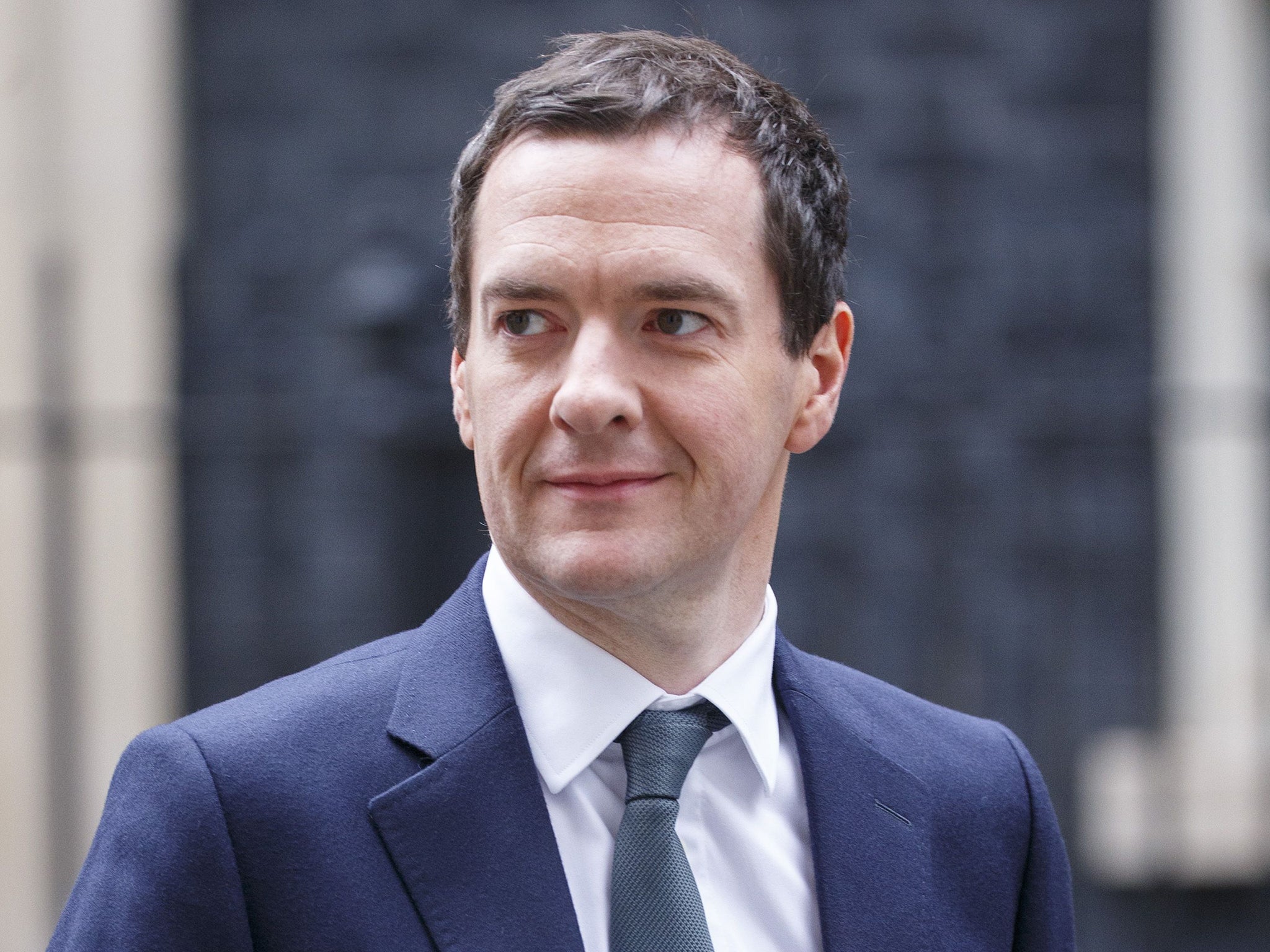George Osborne is playful, quick and clever - but has the Chancellor reached his peak?
We know he’s good at reading politics; but we know too that he makes mistakes


George Osborne, like his arch-enemy the now Professor Ed Balls, is more fun than his public demeanour suggests. Neither is well served by television. In person, they are both playful, quick and clever. A little of this was on display recently, when the Chancellor interviewed Charles Moore about his biography of Margaret Thatcher.
Moore said that even at her most powerful, during her second term, she thought her senior colleagues wanted her job and she was right, “they did” – even the apparently unassuming Geoffrey Howe. “I was going to come on to how chancellors bring prime ministers down,” said Osborne.
Which was a mischievous reference to just about everything in modern British politics: from the great Blair-Brown rivalry that dominated Osborne’s formative years, to his own relationship with David Cameron, a Prime Minister who, like Tony Blair, has pre-announced his departure. It was a deft reminder that Osborne was Michael Howard’s first choice as Conservative leader in 2005. That Osborne recognised with good grace, unlike others we could mention, that someone else was the better candidate to lead the party from the wilderness of opposition. And that he had learned from Gordon Brown’s mistake and been thoroughly – and genuinely – supportive of Cameron ever since.
That difference has allowed Osborne to imitate Brown more freely in other ways. His gimmicky, theatrical budgets. His love of traps and dividing lines. This is Gordon, half an octave higher. Osborne even, we have learned, forgave Peter Mandelson (in his case for a 2008 spat on Oleg Deripaska’s yacht) and they have been spotted in deep and friendly conversation. And Osborne’s use of the Treasury as a centre of power and patronage is all the more effective because there is no rival pole of Cameronites grouped around the Prime Minister.
Except that now, Conservative MPs who have failed to get on Osborne’s conveyor-belt to promotion are beginning to look to another faction leader. Backbenchers who are worried about cuts to tax credits have noticed that Boris Johnson has said – I quote loosely – that the Chancellor must be off his trolley to be taking from the hard-working poor. The Mayor of London has started to work on Tory MPs by remembering some of their names, having come back from the darkness of Tory victory at the election by delivering one of the speeches of his life at the party conference in Manchester, a brilliant blend of Euroscepticism, humour and social justice.
Suddenly, we have to take seriously something that has always been there with Osborne: that he may not be as clever as he thinks he is. We know he is quick and good at reading politics, but we know too that he makes mistakes. There was the 2012 Budget when everything went wrong at once. A lot of silliness about taxes on pasties and caravans, but the big misjudgement was to cut the top rate of income tax from 50p to 45p. That needlessly damaged the “all in it together” brand, and it is quite a tribute to Cameron that he managed to win this year despite it.
Now too-clever Osborne has sold our nuclear industry to China, which makes a lot of Tories uncomfortable. But the big mistake is surely the tax credit cuts, still six months off, a rumbling disaster like a waterfall towards which HMS Treasury is drifting.
The Labour membership’s decision that winning is overrated may have taken the suspense out of the next election. But that means the internal politics of the Conservative Party becomes the main event. The competition between Johnson and Osborne could be as tense as anything in Moore’s third volume, on Thatcher’s fall.
Osborne loves the game of politics, and he loves making traps for opponents. He thought the living wage, a Labour dream, would give him cover for bold savings from tax credits, about which Labour has been uncertain. But everyone realises now that the National Living Wage gives the working poor £1 for every £4 he takes away in tax credits. Tory MPs know a lot of their constituents are about to be hit hard.
I still think Osborne will find a way in his Autumn Statement next month to soften the impact, but his room for manoeuvre is limited
Yet the clever Chancellor has just boxed himself in, closing off the obvious retreat of easing his target for balancing the books by tabling his gimmicky “charter of fiscal responsibility” and making Tory MPs vote for it.
I still think Osborne will find a way in his Autumn Statement next month to soften the impact, but his room for manoeuvre is limited and if he doesn’t get it right, Johnson is waiting. Someone close to the search for a way out told me the welfare savings are “a key block in the Jenga – £6bn is a lot of money”. Take them away, in other words, and the whole tower of Osborne’s fiscal credibility will fall.
The Mayor of London has been written off as a buffoon whose novelty is wearing thin. On the contrary, the real novelty could be just about to get started.
Join our commenting forum
Join thought-provoking conversations, follow other Independent readers and see their replies
Comments
Bookmark popover
Removed from bookmarks